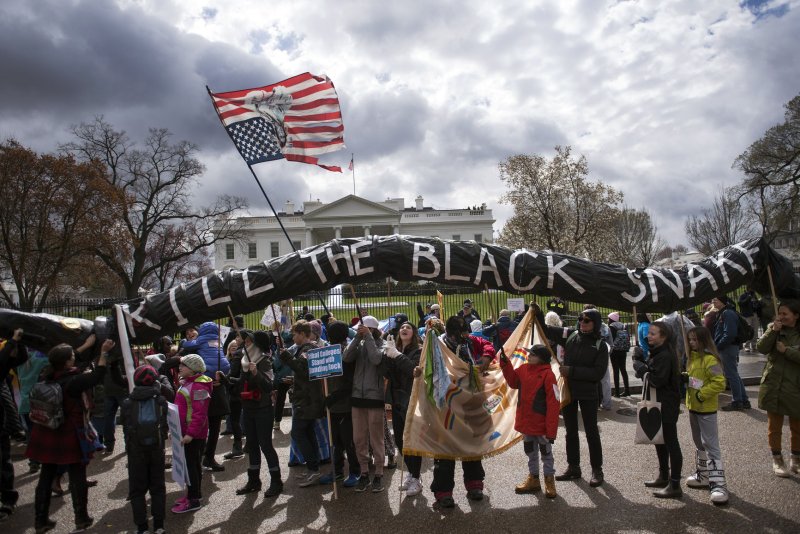Legal action against environmental advocacy groups is inhibiting their freedom of speech, Human Right Watch said. File Photo by Kevin Dietsch/UPI |
License Photo
May 31 (UPI) -- Human Rights Watch said Thursday it was worried that lawsuits meant to muzzle environmental advocacy groups were inhibiting free speech.
A lawsuit filed by Canadian logging company Resolute Forest Products against Greenpeace, Stand.earth and a handful of staff members uses the Racketeer Influenced and Corrupt Organizations Act from 1970 in the U.S. courts. According to Human Rights Watch, the logging company accuses Greenpeace of generating revenue from misleading campaigns.
Matthew Parsons, a coordinator in the environmental division of Human Rights Watch, said the $230 million lawsuit by the logging company is an example of "strategic lawsuits against public participation," known also as SLAPPs.
"SLAPPs are meant to drain activists' resources and intimidate them into silence," he wrote. "When saddled with a multimillion-dollar lawsuit, organizations are forced to divert their attention away from their environmental work and to use scarce resources to defend themselves in court."
The U.S. division of Greenpeace was sued over its stance on the Dakota Access Pipeline. President Donald Trump in early 2017 gave final approval to finish the last stretch of the oil pipeline in North Dakota beneath Lake Oahe, a federally-owned body of water.
The Standing Rock Sioux Tribe filed a legal brief last year seeking a reversal of permits issued by the U.S. Army Corps of Engineers for pipeline construction. North Dakota Gov. Doug Burgum, a Republican, said many of the project delays were politically driven.
Companies challenging the advocates argue their actions are causing significant financial harm.
In 2014, Spanish authorities seized a Greenpeace ship after activists staged a protest against Spanish oil company Repsol for its drilling operations near the Canary Islands. The Spanish government seized the vessel and started an investigation into the ship's crew for violation of maritime traffic rules.
In 2013, the Russian Foreign Ministry said action taken by Greenpeace "had the appearance of extremist activity." The advocacy group said it was working peacefully to raise concerns about the potential for an oil spill in the harsh arctic environment.
Human Rights Watch said it was concerned that some action, like SLAPPs, are aimed at muzzling environmental advocates.
"In the face of serious threats to our environment, such as biodiversity loss, climate change, and chemical pollution, it is critical for environmental activists and groups to be able to organize and freely express themselves without the threat of baseless lawsuits," Parsons wrote.















